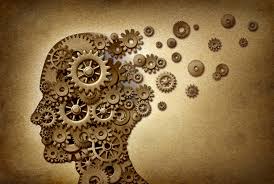
FROM MY FILES FRIDAY: I’m asked all the time to name what cities and communities are doing things right. In this blog from 2011, I describe programs that make a difference and what I believe is an essential ingredient in helping someone recover.
WHAT HELPS PEOPLE RECOVER?
What’s the most important ingredient to recovery if you have a mental illness?
The Mental Health Coalition in La Crosse asked me during a recent trip to Wisconsin to tell its members about successful programs that I’ve seen while traveling to three foreign countries and 46 states. I don’t mind citing specific examples.
Want to see a top notch Crisis Intervention Team in operation. Go to Houston, Texas. CIT is important because law enforcement officers deal with more persons with mental problems than most psychiatrists do during a day. We need more CIT training.
Want to see a city that is saving taxdollars by helping people get treatment rather than locking them up. Visit San Antonio, Texas. It is home to a Community Crisis Center where CIT teams can take persons for immediate help and drop them off rather than locking them up in jail or dumping them at the doors of already crowded emergency rooms. The San Antonio crisis center has recently developed SOBER ROOMS where persons who are drunk in public can be taken and helped, rather than put in a drunk tank. It’s crisis center is saving $3 million annually and the city now has a 1,000 bed surplus in its jails.
If you want to see Mental Health Courts, go to Pittsburgh, Pa.. Judges there are helping people get help rather than wasting away in jail. Allegheny County (Pa.) also has a fabulous Jail Intercept Program where prisoners with mental illnesses are identified and directed into treatment.
Visit the Twin Towers — the Los Angeles jail — if you want to see a re-entry program where persons with mental disorders in jail are connected with services and housing before they are released to the streets.
Want examples of programs that don’t involve the criminal justice system?
Travel to L.A.’s Skid Row and tour The LAMP, one of the country’s premier Housing First programs. It was featured in the hit film, The Soloist. There are a number of innovative housing programs in Skid Row, many receiving funds from the Corporation for Supportive Housing, a fabulous group that helps communities finance housing projects.
Interested in learning about Assertive Community Treatment? Visit the town where it was born: Madison, Wisconsin. ACT is one of the most effective treatment methods ever developed because it takes professionals to the clients for intense help rather than expecting people who are sick and disoriented to find help on their own.
Denver, Colorado has a great recovery program that welcomes the homeless with drop in centers.
Fort Wayne, Indiana has adopted the fabulous Fountain House Clubhouse model that helps people get jobs.
Go to Jacksonville, Florida, if you want to see an innovative peer led program where persons with mental disorders can choose to make Weight Watchers part of their treatment routine and can actually fire members of their treatment team if they fail to help them meet their recovery goals.
Montgomery County, Pennsylvania has a great peer to peer program. Cincinnati has a well run Homeless Team.
The list goes on and on.
So what is the most important recovery tool? CIT? ACT? Mental Health Courts? Housing First? Great community services?
People are always a bit surprised to hear what I think is the most necessary ingredient. This is because it is not a specific program.
There can be no recovery without HOPE.
Persons who have mental disorders must have hope. They must believe they can get better. And the people helping them on their journey must believe that too.
I know it might sound Pollyannaish, especially if you have a loved one who has been sick for years or is in the midst of a psychotic break, is violent, refuses to cooperate, or is in denial. Trust me, I do not believe that love conquers all and that we can cure a brain disease simply by becoming a cheerleader for a person who is sick and wishing their problems would disappear.
But I also believe that sometimes we forget the importance of believing in the seemingly impossible. Perhaps, not everyone will get well. But we must believe that everyone can improve, can move forward, and can recover, otherwise they most certainly will not improve, will not move forward and will not recover.
Put simply, we must never underestimate the human spirit. We must never lose hope.
Some people claim that the actor Hal Lindsey said the following. Others believe it is much older than him and the author is unknown. Regardless, the words are ones that I like to remember and will likely repeat during my speech:
Man can live about forty days without food, about three days without water, about eight minutes without air, but only for one second without hope.”
HOPE is essential to recovery.



